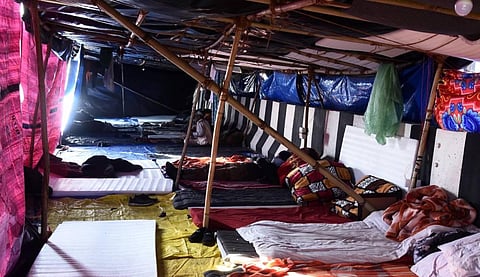

NEW DELHI: While the authorities have made a substantial investment in putting up barricades, water cannons and barbed wires, not much effort has been made for arranging basic amenities— drinking water, clean toilets and garbage disposal— at various sites where farmers have been sitting on protest against the farm laws, according to a survey.
Jan Swasthya Abhiyan conducted a rapid assessment of basic amenities at the protest sites on the national capital’s borders.
JSA is a national level movement on health and health care across the country.
“Almost all the participants in our survey were not availing drinking water facility by the respective governments at these sites. While the majority were dependent on either packaged drinking water or water tanks arranged by the volunteers, 5 per cent were buying water bottles to meet their requirement for drinking and cooking,” it said.
Lack of proper sanitation is one of the major concerns at the protest sites. Most protesters are compelled to resort to open defecation.
At Singhu border, where protesters have gathered in highest numbers, open defecation is high as there are not enough sanitation facilities.
Lack of mobile toilets and improper maintenance of these by the local authorities have pushed a considerable number of protesters to resort to open defecation.
Most women had to arrange sanitary pads themselves while very few were provided with these pads at medical camps.
They have also found it challenging to dispose of the pads. According to the survey, as many as 31 per cent women had to dispose of their used pads by the side of the roads.
The issue of food waste decomposing near the protest sites in absence of regular disposal also needs immediate attention.
The multi-layer barricading by police has made it difficult for vehicles to reach these places creating problems for waste disposal amongst others, the survey said.